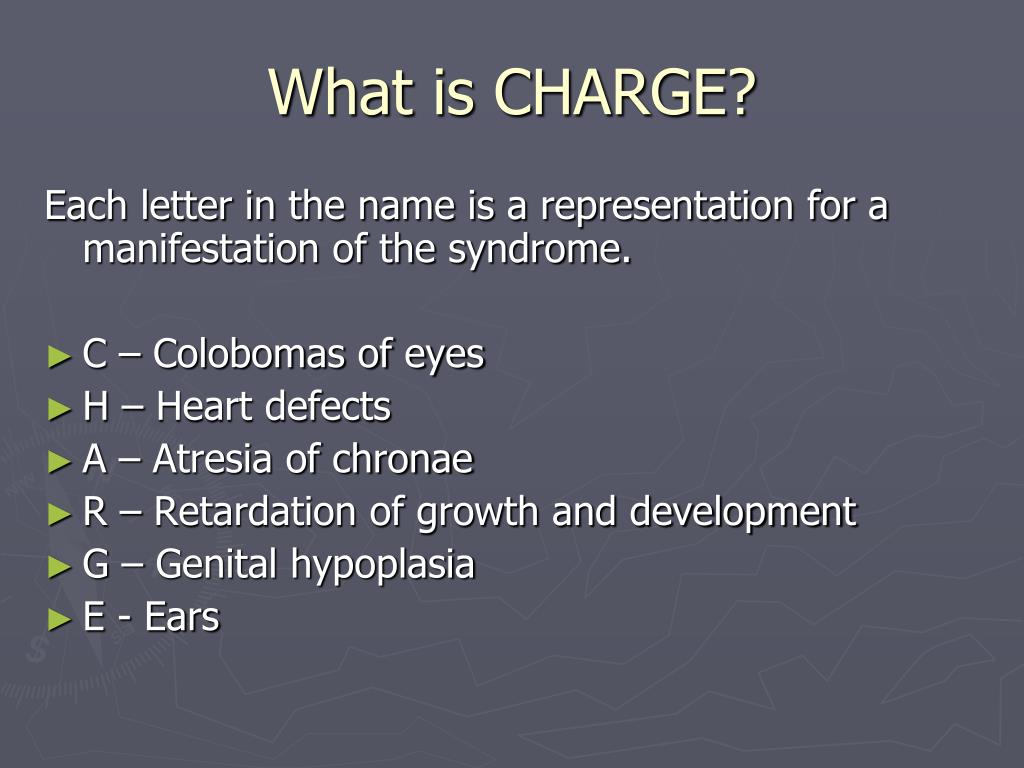

#Charge syndrome and aggressive behavior full
However, a recent meta-analysis has shown the prevalence of the full mutation was 1.4 per 10,000 males and 0.9 per 10,000 females 1:7,143 and 1:11,111, respectively, within the total population. We excluded articles published in other languages.Įstimates for the prevalence of FXS vary considerably. We did a literature search of relevant articles from the databases, namely, PubMed and Google Scholar, until January 7, 2022, using the following keywords: "fmr1," "clinical management," "behavioral problems," "behavioral treatment," "fragile X syndrome," and "psychopharmacology." Articles had to meet four inclusion criteria: (1) studies that included diagnosed cases of FXS (2) general studies conducted in FXS patients to assess the behavioral problems and their management (3) all study designs, including clinical trials, observational studies, systematic and literature reviews, and case reports that assessed the clinical management of behavioral problems in FXS and (4) studies published in the last two decades and written in the English language. This paper will serve as a literature review of both the pharmacological and non-pharmacological management of behavioral concerns of FXS and provide a review of treatments available for managing behavioral problems in patients with FXS. The need to compare both pharmacological and non-pharmacological treatments for behavioral problems in FXS is essential to provide the most up-to-date treatment strategies.

Presently, there are no specific management strategies to completely cure individuals with FXS however, improvements in the quality of life of these patients can be achieved by providing treatments for challenging behavioral problems. FXS causes a variety of clinical and behavioral abnormalities, which consequently affect physical and mental health, including learning and behavior. Expansions of more than 200 repeats are known as the full mutation and patients with at least 200 repeats are noted to have FXS. FXS is caused by cytosine-guanine-guanine (CGG) trinucleotide repeats in the fragile X mental retardation 1 (FMR1) gene located in chromosome Xq27.3. Fragile X syndrome (FXS) is an X-linked dominant disorder noted to be the leading cause of inherited intellectual disability affecting approximately 1/4,000 males.


 0 kommentar(er)
0 kommentar(er)
